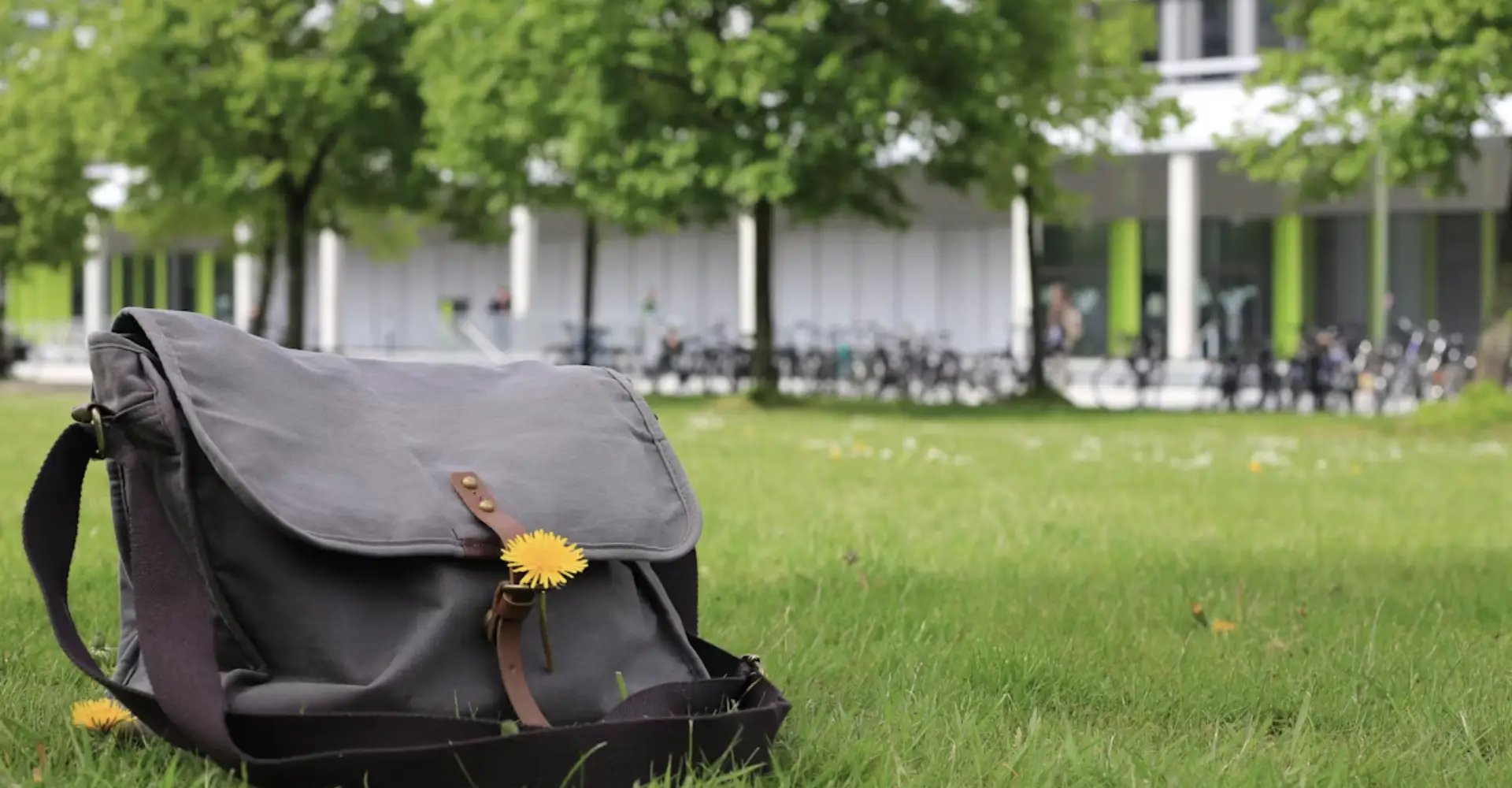Starting second year can be relieving just as much as it can be a bit nerve-racking. You’re coming back to familiar ground but it is still a new year with greater academic challenges and social pressures. I have compiled four areas of focus for how to best prepare for your second year of university. All from nurturing friendships to setting career goals. No one has it all figured out, there’s graduates out there that decide to retrain well into their 30’s. Regardless this is about you, in the present. This is my unprofessional professional advice on how to feel ready to take on the challenges of second year with the tools and experiences from first year in your armoury for a smooth transition.
1. Academic preparation

Your second year is your chance to take on everything you learnt in your first year and set personal goals. I don’t know about you but I was left very disillusioned about how difficult university work would be in second year. This isn’t to scare you but I always think it’s better to be realistic when thinking about how to prepare for second year. Its ok to not get a first in everything, its okay to struggle to do 60 pages of reading a week per module. I think the best thing you can do in preparation for second year is actively engage with your feedback. Not everyone is blessed with a super attentive lecturer or seminar leader. I’m sure you’ve received the classic vague pieces of feedback like “good” or “yes” on a essay paper and just looked at it like….Okay… This doesn’t have to be taken as finite. Your learning and success is in your hands.
The best habit I developed in second year was to follow up my feedback. If you received that classic “good job”, then start wanting to know what about that sentence or paragraph was good, for replication purposes. Same goes for constructive criticism. Reading feedback like “develop this more” or “needs checking” is , I agree, awkward. It leaves you a bit stranded. Maybe our lecturers do this on purpose because they wished more people came to their office hours. Lecturers want to see you being proactive and enthusiastic about your learning because it will inevitably push you above the marking thresholds. Asking how to develop this, asking for sentence examples, help with wording or structure face to face with a printed copy of your essay annotated with the feedback is my top preparation tip for becoming an academic weapon.
No, you don’t look like a try hard, you look like someone that actually cares about your academic development and that is a big part of university. Preparation for second year means using those office hours to your advantage. Don’t be sacred to ‘look like a try-hard’ this isn’t secondary school, this is your degree and in the end it will be your name on that diploma.
2. Social and personal growth
Coming back to uni after first year is kind of, odd. You’re not starting form scratch, second year is that liminal space in between old and new. You are definitely more familiar with the surroundings but some connections might require nurturing after a long summer break. I remember when I came back in second year, my far too honest guy mates were like “what is wring with you bro you’re being so awkward” but genuinely I felt shy after being back home. Preparing for the social aspect of second year is all about having an open mind again.
Just because your made friends in first year doesn’t mean you can’t discover new things about them or make new friends entirely. There is always room for growth and maybe over summer your interests developed or your values changed. Reconnecting with people over the new things you have to share as is a good chance to nurture those relationships that may need their roots watered.
It is never too late to join a new society or extracurricular. Transferring a new sport or work experience you did over the summer to develop further in your university environment is a great place to start. Meeting people has no timeline or rules, it definitely doesn’t end after freshers week. I have cousins whose closest uni friends they didn’t even meet or become fully close with until third year so there is no such thing as running out of time to find ‘your’ people. Preparing for second year is about taking your experience from first year and building on the things that made you happy. There is no obligation or expectation to stay in the same place and have it all figured out after a only a year.
3. Career development

I will preface this section as this is my unprofessional advice on career development as someone very much still in the turmoil of applying for internships, facing rejection and manifesting a personal vision. With that experience so far I think my greatest revelation on preparing for second year is that your degree is not your limit. Just because I am a history and sociology student, does not mean I can easily type in “History internship” into LinkedIn and the ideal opportunity will arise. You reading this may be a linguistics or engineering student, but your prospects are not limited if you consider all the transferable skills and other interest you can apply to your search. I for one have no plans of being a History teacher, and that was the first step of knowing at least one thing I do not want to do.
Volunteering is very in for 2025. Understandably, not everyone can afford to do unpaid labour, however, volunteering opportunities don’t always shave to be linked to working.
Doing something you enjoy and finding a way to contribute to society with a mindset that expects nothing in return is a great strength. A positive impact on skills growth is just happy side effect. For example, I write for multiple online blogs, just like this one, all focused in different areas of arts, culture, academic writing and creative skills. I do not get paid, but I also don’t expect to because that wasn’t the initial goal. The goal in second year is find ways you can apply any skills you have in a focused environment. Everyone has a skill and someone out there will value you for it.
Picking modules that align with these interests and goals for skill building, using the careers services, volunteering programmes and taking online courses at your own pace are a few examples of where to focus you preparation for second year. Begin capitalising on things you discovered you enjoyed in first year, even if its just one small hobby or goal.
For more content on career, check out our jobs and careers page.
4. Financial preparation

I learnt a lot about my spending habits in first year once I was left to my own devices. They are not good, in short. I have a problem, maybe you can relate. I love a cheeky Primark trip or Arndale foodcourt moment. There is no shame. We have to indulge, its part of learning abut your freedoms and managing a lifestyle autonomous from being at home. The excel spreadsheet did save my life at the beginning of second year, especially since I started earning an income working online a couple hours a week.
Whether you have a part time job in uni or save money from working locally during the holidays, preparation for second year means channeling your inner accountant. I invented an alter ego, her name is Margaret and she does my spreadsheets. Mia is still fun having a wild time getting that extra apple pie on the 3am maccies order or being a far too generous drunk getting the next round at Spoons. Margaret knocks once a month and forces Mia to tally up her earnings, spendings and areas for improvement. It is a form of torture and self reflection I endure for the benefit of being able to do my food shop the next week and not have to leave out the granola bars I really want.
Do the breakdown. Make it pink (if thats your thing, its definitely mine), make it personalised, add pictures and emojis. Make it enticing. Preparing for second year doesn’t have to be boring , but I definitely became more mindful after being a bit too carefree in first year. Theres no shame, not at all, it was part of the experience of being left to my own devices and having to parent myself. Keeping track of expenses can settle your mind while you looks for ways to earn. I’d recommend on campus gigs such as note-taking , leading study groups, paid student ambassador positions, and tutoring either online or at local community centres and sixth forms.
I used this website for help structuring my spreadsheet and templates can be found all over the internet so you don’t have to be an excel wiz like Margaret to get started.
Second year is demanding. The pressure goes up and for those like myself on three year courses, it feels like it is flying by. Preparing for second year is about embracing opportunity and learning to make use of the skills and experiences you have stocked up from first year. Preparation definitely makes all the difference when you have knowledge of what to expect. Its equally important to saving space for growth and change. Embrace both the academic and personal shifts. University is not easy, it is hard work, so congratulate yourself for making it to the second step and look fondly on the foundation you built before!
Author
-
I'm Mia, a student at Manchester University studying History and Sociology. I love writing all things advice, tips and tricks to maximise your experience here in the big city. When my friends can't reach me, I'm probably taking pictures at some random rave and dabbling in the world of photojournalism or curled up in bed with my kindle and phone on DND.
View all posts





